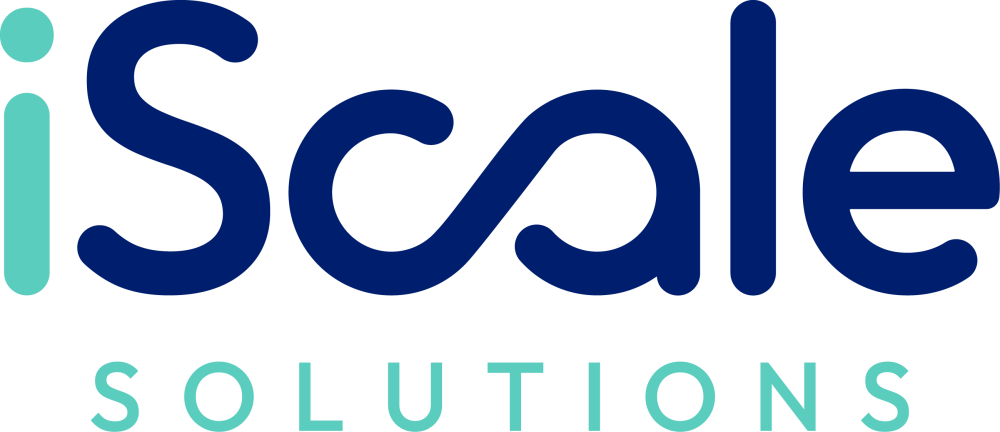Hiring the right software developer is very important for any business looking to grow and innovate. Skilled developers can significantly impact project timelines, product quality, and overall business success.
However, here’s the brutal truth: it’s extremely difficult for early-stage startups to hire software developers. With limited resources and often run by a small team, startups struggle to compete with established companies in terms of perks and salary. Developers tend to prefer established organizations with stable conditions and better growth opportunities.
But don’t worry. Many early-stage startups are turning to outsourcing their development needs. Companies like Slack and WhatsApp successfully outsourced their development work when they started.
Outsourcing has become the norm, with 83% of small businesses planning to increase spending on outsourced services, according to a 2023 Clutch survey. By 2028, the IT outsourcing market is projected to reach $171.5 billion.
For small and medium-sized businesses, outsourcing serves as a key growth accelerator. To stay ahead of the competition, consider hiring developers through outsourcing.
In this article, we’ll provide a comprehensive guide on how to hire developers for your startup, overcome hiring challenges, and save costs by hiring the right talent.
The Importance of Hiring the Right Software Developer
Hiring the right software developer is not just about filling a position; it’s about finding a crucial team member who can contribute to your business’s success. Skilled developers bring expertise that ensures projects are completed on time, within budget, and to the highest standards. They can improve product quality, leading to better customer satisfaction and retention. Furthermore, a competent developer can drive innovation, helping your business stay competitive and adapt to new market demands.
What Type of Developer Do You Need?
Before you start the hiring process, it’s essential to understand what type of developer you need. Software development is a broad field with various specializations:
Role | Specialization |
Front-End Developers | HTML, CSS, JavaScript, frameworks like React or Angular |
Back-End Developers | Python, Java, Ruby, tools like SQL, Node.js, Django |
Full-Stack Developers | Expertise in both front-end (HTML, CSS, JavaScript) and back-end (Python, Java, Ruby) development |
Mobile App Developers | Platforms like iOS and Android, languages such as Swift, Kotlin, Java |
DevOps Engineer | Integration of development and operations, ensuring smooth deployment, scalability, maintenance, tools like Docker, Kubernetes, Jenkins |
AI/ML Developers | Integrating artificial intelligence and machine learning, frameworks like TensorFlow, PyTorch, languages like Python |
Defining the project scope and technical requirements is essential. Understand the skills and experience needed for your specific project to ensure you attract the right candidates.
How to Source the Right Software Developers?
Finding the right software developers for your project requires a strategic approach. Here are several sourcing methods methods to consider:
Traditional Sourcing Methods
- Job Boards: Post job listings on popular job boards such as Indeed, Glassdoor, and Monster. These platforms attract a wide range of candidates actively looking for new opportunities.
- University Recruitment: Partner with universities and colleges to recruit fresh graduates. Many institutions host career fairs and have job placement programs that can help you find eager new talent.
- Networking Events: Attend industry-specific networking events, conferences, and meetups. These gatherings are excellent opportunities to meet potential candidates and build relationships within the tech community.
Modern Sourcing Methods
- LinkedIn: Leverage LinkedIn for professional networking and job postings. It allows you to search for candidates with specific skills and experience, and reach out to them directly.
- GitHub: Search for developers who contribute to open-source projects on GitHub. This platform provides insight into a candidate’s coding skills and interests based on their contributions and repositories.
- Developer Communities: Engage with online communities such as Stack Overflow, Reddit, and HackerRank. These platforms are frequented by developers who are passionate about coding and may be open to new opportunities.
- Social Media: Utilize social media platforms like Twitter and Facebook to promote job openings and connect with potential candidates. These platforms can help you reach a broader audience.
Partnering with Outsourcing Companies
Outsourcing your software development needs to a specialized company can be a highly effective strategy. Here’s why partnering with an outsourcing provider like iScale Solutions is beneficial:
- Access to Pre-Screened Talent: Outsourcing companies have a pool of pre-screened, highly skilled developers, ensuring you get top-quality talent quickly.
- Cost-Effectiveness: Outsourcing can be more cost-effective than hiring full-time employees, as you save on salaries, benefits, and overhead costs.
- Scalability: Easily scale your development team up or down based on project requirements without the hassle of hiring and firing.
- Focus on Core Activities: Outsourcing allows you to focus on your core business activities while the provider handles the development work.
- Expertise and Experience: Outsourcing companies like iScale Solutions have extensive experience and specialized knowledge, which can significantly benefit your projects.

How to Mitigate Risks in Software Development Outsourcing
Learn how to mitigate risks in software development outsourcing by choosing the right partner, setting clear expectations, ensuring quality, protecting data, and managing hidden costs
Crafting a Clear Job Description
A compelling job description is essential for attracting the right software developers. Here are some tips:
- Required Skills and Experience: Clearly outline the technical skills and experience needed. Mention specific languages, frameworks, tools, and any certifications required.
- Project Details: Provide an overview of the project, including goals, timelines, and the role of the developer within the project.
- Company Culture: Describe your company culture and values to attract candidates who align with your organizational ethos.
- Compensation and Benefits: Mention salary ranges, benefits, and any perks to make the position more attractive.
Example Job Description
Job Title: Senior Full-Stack Developer
Company: iScale Solutions
Location: Remote
About Us:
iScale Solutions is a leading provider of software development and IT outsourcing services. We are looking for a skilled Senior Full-Stack Developer to join our dynamic team and contribute to our innovative projects.
Responsibilities:
- Develop and maintain web applications using React, Node.js, and MongoDB.
- Collaborate with cross-functional teams to define, design, and ship new features.
- Ensure the performance, quality, and responsiveness of applications.
- Identify and correct bottlenecks and fix bugs.
- Stay up-to-date with emerging technologies and industry trends.
Requirements:
- 5+ years of experience in full-stack development.
- Proficient in JavaScript, React, Node.js, and MongoDB.
- Experience with RESTful APIs and third-party libraries.
- Strong problem-solving skills and ability to work independently.
- Excellent communication skills and a team-oriented mindset.
- Familiarity with agile development methodologies is a plus.
Benefits:
- Competitive salary.
- Health insurance.
- Flexible working hours.
- Opportunity for professional growth.
- Work from anywhere with our remote-first policy.
- Access to continuous learning and development resources.
How to Apply:
Interested candidates should send their resume and a cover letter detailing their relevant experience to hr@iscale-solutions.com.
Join iScale Solutions and be a part of a team that values innovation, collaboration, and personal growth. We look forward to welcoming you aboard!
Screening and Shortlisting Candidates
Once you have a pool of candidates, effective screening is mandatory:
- Resumes and Portfolios: Review resumes and portfolios to assess relevant experience and past projects.
- Red Flags: Look for gaps in employment, frequent job changes, and lack of relevant experience.
- Standout Candidates: Identify candidates with a strong portfolio, consistent employment history, and relevant skills.
Reviewing Resumes and Portfolios
- Relevant Experience: Look for candidates with experience that aligns with your project requirements. Check for specific technologies, languages, and frameworks mentioned in the job description.
- Portfolio Quality: Evaluate the quality of the candidate’s portfolio. Look for examples of past projects, code samples, and contributions to open-source projects. Platforms like GitHub can provide valuable insights into a candidate’s coding skills and style.
- Achievements and Certifications: Take note of any notable achievements, certifications, or contributions to the tech community. These can indicate a candidate’s commitment to their professional development and their expertise in specific areas.
Interviewing Software Developers
Preparing for interviews involves both technical and behavioral assessments to ensure you find the right fit for your team.
Technical Interviews
Technical interviews are essential to evaluate a candidate’s coding skills and problem-solving abilities. Prepare common technical questions and coding challenges relevant to the role. For instance, if you’re hiring a front-end developer, include tasks that test their knowledge of HTML, CSS, and JavaScript, as well as their ability to work with frameworks like React or Angular. For back-end developers, focus on languages like Python, Java, or Ruby, and their experience with databases and server-side logic. Using online coding platforms can streamline this process and provide real-time insights into the candidate’s capabilities.
Behavioral Interviews
Behavioral interviews help assess a candidate’s soft skills, problem-solving abilities, and cultural fit. Ask questions that reveal how they handle challenges, work within a team, and adapt to new situations. For example, you might ask them to describe a time they faced a difficult problem and how they resolved it, or how they prioritize tasks when managing multiple projects. This part of the interview also gives you a sense of their communication skills and whether their values align with your company’s culture.
Remote Interviews
With the rise of remote work, conducting effective remote interviews has become a requirement. Use tools like Zoom or Skype to facilitate these interviews. Ensure a smooth and effective process by preparing well in advance—test your technology, ensure a quiet and professional environment, and have a structured format for the interview. Remote interviews can also include screen-sharing to allow candidates to demonstrate their coding skills in real time, providing a comprehensive view of their technical and interpersonal abilities.
Evaluating Technical Skills and Cultural Fit
Assessing technical proficiency and cultural fit is essential in the hiring process. Here’s how to do it effectively:
Coding Tests
Use coding tests and challenges to evaluate problem-solving skills and coding abilities. Tools like HackerRank, Codility, and LeetCode provide platforms for administering coding tests tailored to the specific skills you need. These tests can help you gauge the candidate’s ability to write clean, efficient code and solve complex problems.
Technical Questions
Ask questions that test knowledge of specific languages, frameworks, and tools. During the interview, use platforms like CoderPad or CodeSignal to conduct live coding sessions where candidates can demonstrate their proficiency in real-time. Tailor your questions to the specific technologies your project requires, such as Python for back-end development or React for front-end work.
Soft Skills
Evaluate communication, teamwork, and adaptability. Use behavioral interview techniques to ask about past experiences and how candidates have handled various situations. Tools like Spark Hire or VidCruiter can facilitate video interviews, making it easier to assess a candidate’s soft skills remotely. Questions might include scenarios on conflict resolution, project management, and collaboration.
Cultural Fit
Ensure the candidate aligns with your company’s values and culture. During the interview, discuss your company’s mission, values, and work environment. Use tools like Culture Amp or Officevibe to create assessments that measure cultural alignment. Ask candidates about their preferred work style, values, and how they see themselves fitting into your team.
Trial Periods and Probationary Contracts
Consider using trial periods or probationary contracts to evaluate long-term compatibility. Tools like Gusto or BambooHR can help manage these arrangements, tracking performance and feedback during the trial period. This approach allows both parties to ensure a good fit before making a long-term commitment, reducing the risk of turnover and ensuring mutual satisfaction.
Making the Offer and Onboarding
Once you’ve selected a candidate, follow these best practices to ensure a successful hiring process and smooth integration into your team.
Competitive Offer
Make a competitive offer that includes salary, benefits, and any other perks. Research industry standards to ensure your offer is attractive and fair. Highlight additional benefits such as health insurance, flexible working hours, remote work options, and opportunities for professional development. Being transparent about the offer package can also help in building trust and setting clear expectations.
Clear Communication
Ensure clear communication during the offer stage to avoid misunderstandings. Clearly outline the job responsibilities, expectations, and terms of employment in the offer letter. Regularly check in with the candidate to address any questions or concerns they might have. This helps in reinforcing their decision to join your company and demonstrates your commitment to a positive employment experience.
Onboarding Process
Create a smooth onboarding process to integrate the new developer into the team. Provide necessary training, resources, and introductions to key team members. Develop a structured onboarding plan that includes:
- Orientation: Introduce the new hire to the company culture, policies, and tools.
- Training: Offer training sessions on the technologies and frameworks they will be using.
- Mentorship: Assign a mentor or buddy to help them navigate their new role.
- Feedback: Schedule regular check-ins to provide feedback and address any challenges they might face.
Effective onboarding helps new employees feel welcome and quickly become productive members of the team.
Overcoming Common Hiring Challenges
By understanding and addressing these common obstacles, companies can improve their recruitment processes and secure top talent.
- Talent Shortage: The demand for skilled developers often outstrips supply. To overcome this, broaden your search beyond local talent pools. Remote work and global hiring can tap into a wider array of qualified candidates.
- High Competition: Tech giants often attract top talent with lucrative offers. Small to mid-sized companies can compete by emphasizing unique benefits like flexible work environments, opportunities for rapid advancement, and a strong company culture.
- Assessing Skills Accurately: Traditional interviews may not reveal a candidate’s true capabilities. Implement coding tests, project-based assessments, and peer reviews to evaluate technical skills effectively.
- Retention Issues: High turnover rates can disrupt projects and incur additional costs. Focus on creating a supportive work environment, offering competitive compensation, and investing in ongoing professional development to retain your developers.
- Cultural Fit: Ensuring a good cultural fit is as important as technical skills. During the interview process, assess how well candidates align with your company values and team dynamics.
Partnering with iScale Solutions
Hiring the right software developer is critical for your business’s success. By following the steps and best practices outlined in this guide, you can streamline the hiring process and find the right talent for your projects.
Partnering with iScale Solutions can further simplify this process. With our extensive experience, access to top-tier talent, and cost-effective solutions, we can help you overcome common hiring challenges and achieve your business goals.
Ready to hire the right software developer? Contact iScale Solutions today and let us help you find the perfect fit for your team.



